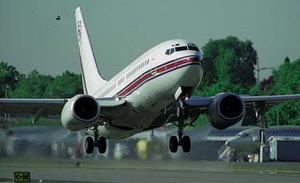Aviation securityFAA issued 27 licenses to potential terrorists
A recent DHS inspector general report revealed that the Federal Aviation Administration FAA) had issued pilot and aircraft mechanic licenses to at least twenty-seven individuals with terrorist connections; the report also found that the Transportation Security Administration (TSA) still cannot determine the identities of thousands of people who currently hold FAA licenses.

DHS does not know who holds licenses // Source: avstop.com
A recent DHS inspector general report revealed that the Federal Aviation Administration FAA) had issued pilot and aircraft mechanic licenses to at least twenty-seven individuals with terrorist connections. The report also found that the Transportation Security Administration (TSA) still cannot determine the identities of thousands of people who currently hold FAA licenses. The report was initially requested two years ago by four Senators after a private data analysis company determined that a man convicted of bombing Pan Am Flight 103 over Scotland in 1988 still possessed his FAA license. In addition both a man caught smuggling military equipment to Hezbollah in Lebanon as well as a self-described “eco-terrorist” convicted of attempting to manufacture an airborne poison were found to still hold their FAA licenses.
Following the 9/11 attacks, Congress approved a law that required the FAA and DHS to scrub its lists of any licensed pilots, mechanics, or flight dispatchers with terrorist ties, but it appears that the two agencies have had difficulty in accomplishing this task.
The recent inspector general report found that the FAA did not have Social Security numbers for nearly 550,000 of the 1.3 million people in the Airmen Registry. Furthermore, of the Social Security numbers that the agency had, more than 15,000 of them had discrepancies in their name, gender, or date of birth.
The report noted that under the existing law, the FAA cannot require a Social Security number when applying for a license and as a result, “TSA may not identify U.S. citizens who have provided false biographic information to receive an airman certificate.”
Not all of FAA’s inaccurate information poses a security threat, as the report found that more than 8,000 of the license holders were dead.
The discrepancies are a clear indication of the poor state of federal records. A computer search found that 29,000 FAA certificates matched the names of individual’s on the government’s Terrorist Screening Database, but further analysis found that 28,500 of the matches were invalid and 506 have led to closer scrutiny, which led to the aforementioned list of twenty-seven names.
The report found that matching names is a difficult and often inaccurate method to secure FAA records as names can often be misspelled or spelled differently, especially if they are translated into English from a non-Roman alphabet. For instance, according to the FAA’s records, the individual convicted of bombing Pan Am flight 103 was named Abdelbaset Elmegrahi, but on the FBI’s most wanted list, his name was spelled Abdel Basset Ali al-Megrahi.
In response to the report, Senator Jay Rockefeller (D- West Virginia), one of the four original senators to request the investigation two years ago and the chairman of an aviation subcommittee, said the inspector general’s findings “[show] that almost 10 years after the 9/11 attacks, the F.A.A. is still not doing enough to verify the identity of airman’s certificate holders and that some certificate holders have connections to terrorism.”
He added that while DHS and FAA were making progress in this realm, “issuing certificates to people who pose a threat to our aviation system is simply unacceptable.”
